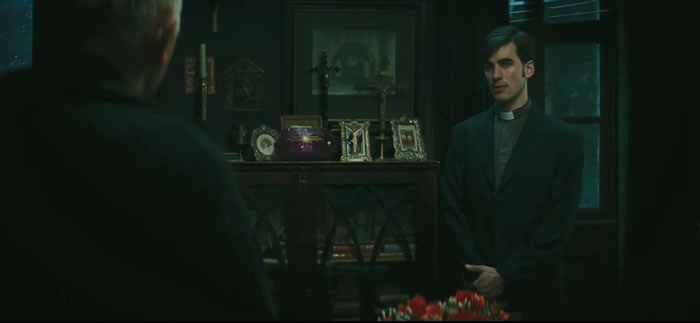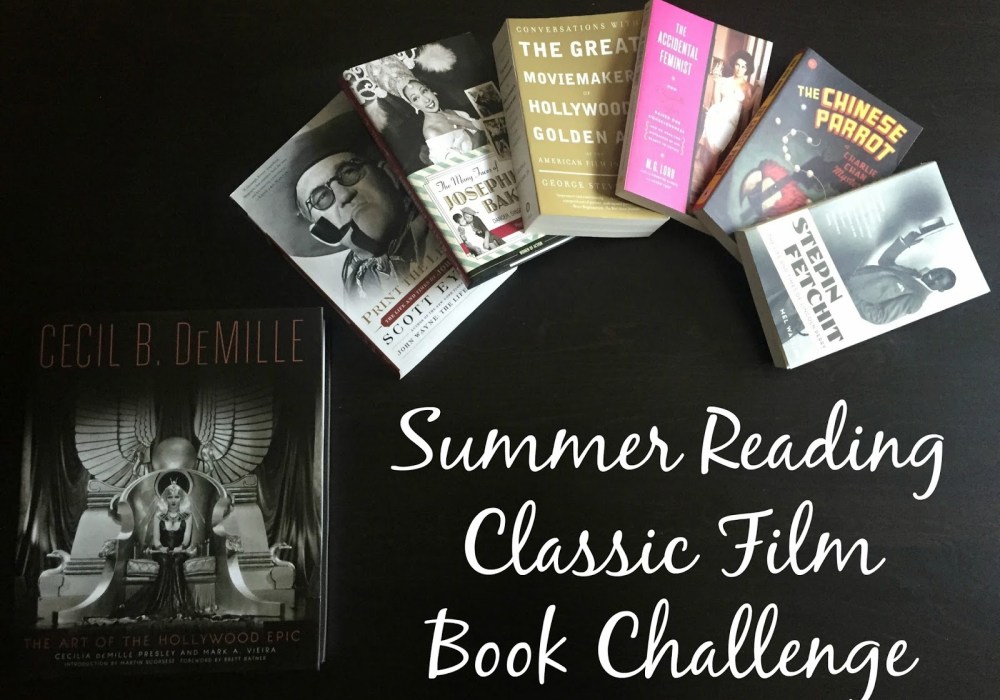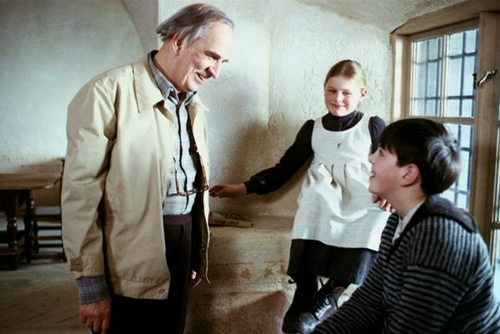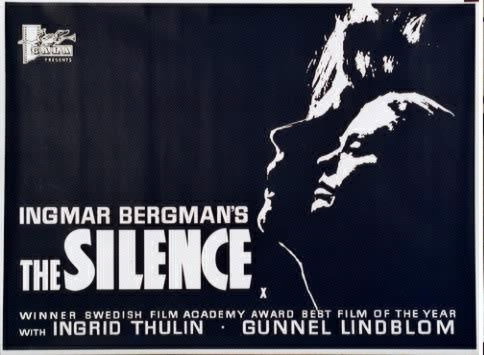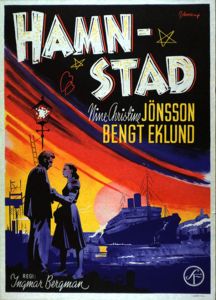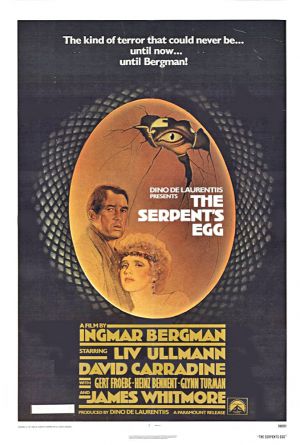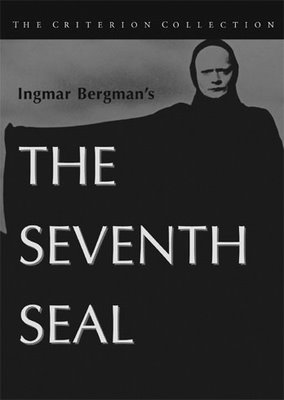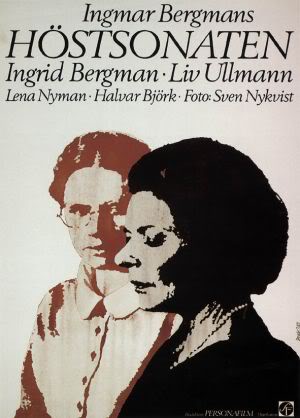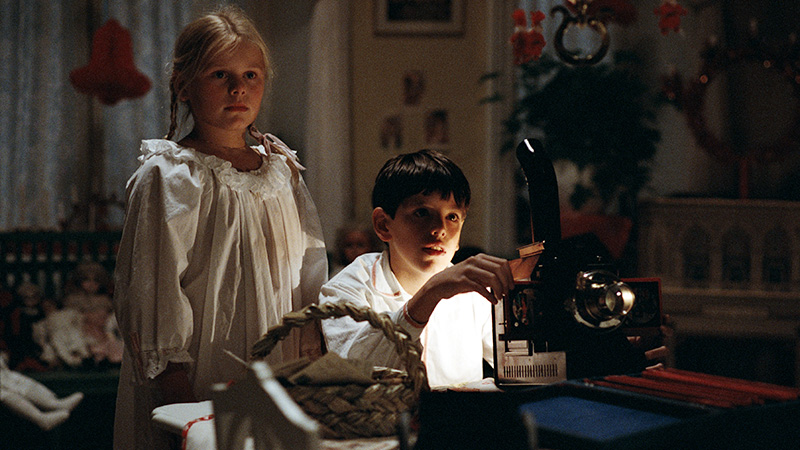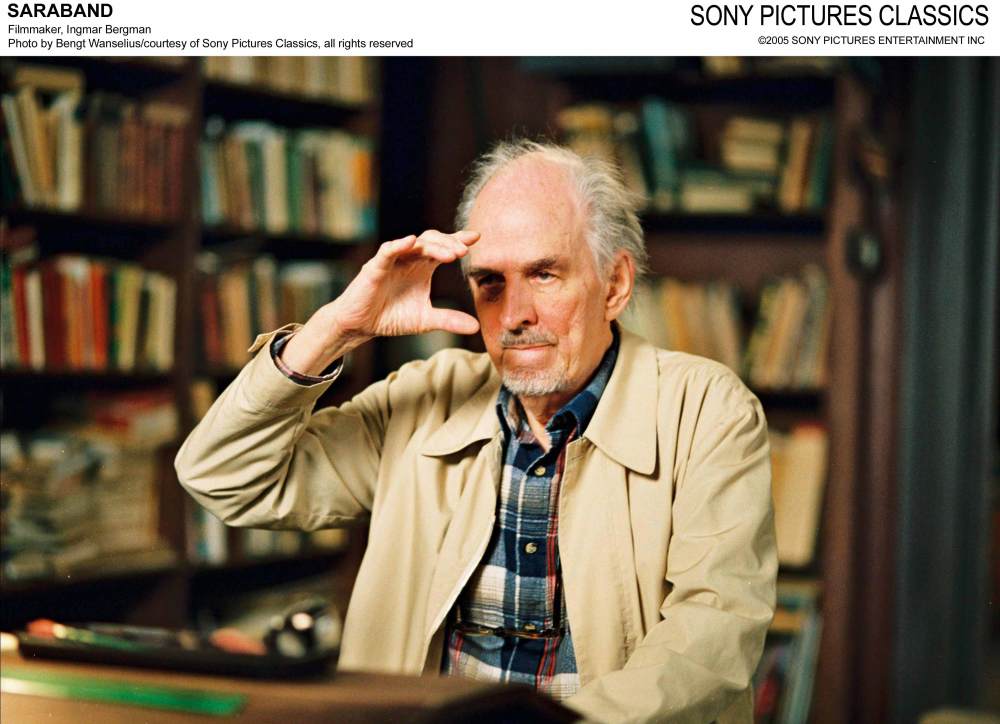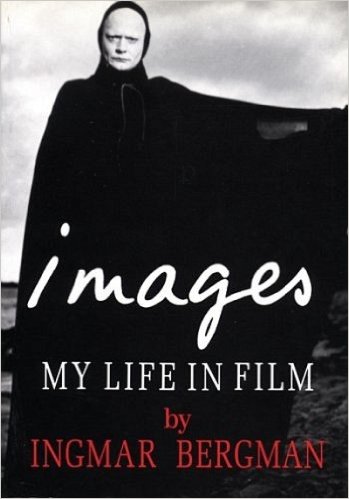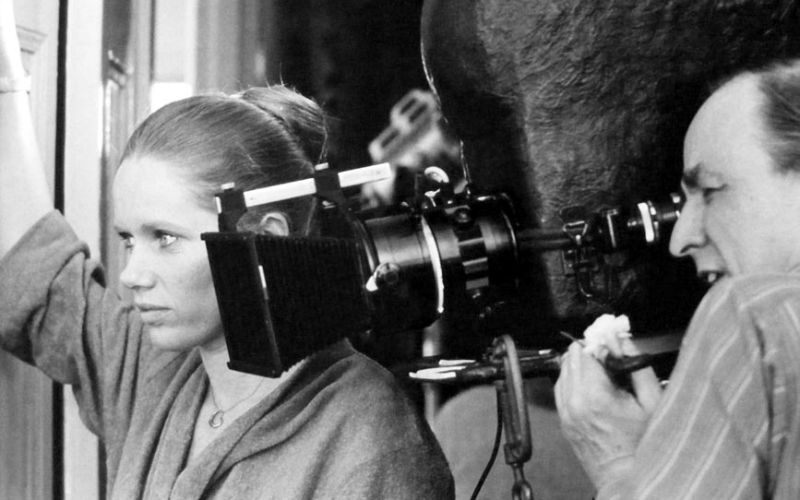Here is another list that is inspired by an idea I first saw on @bobfreelander‘s blog. The first filmmaker I thought of picking was inevitably Ingmar Bergman. He is one of my biggest sources of inspiration and I have seen many of his films, as evidenced below.
The dangers in any list like this is the potential of denigrating the work of a great, which is part of why I wanted to start with someone whose talent and filmography is unimpeachable. I also qualify the list by saying listing his films was a decision ratified by the fact that the films I would say I love encompass about half the list, which proves how a ranking can be misleading.
I have also noted below what I haven’t seen and discuss some of his written works also.
32. The Seventh Seal (1957)

This may be one of the few controversial rankings of my piece. I’ll readily admit I saw this film for the first time at far too young an age, but while I appreciated it more when I revisited it I just do not connect with this film as I do with the rest of his works.
31. Smiles of a Summer Night (1955)
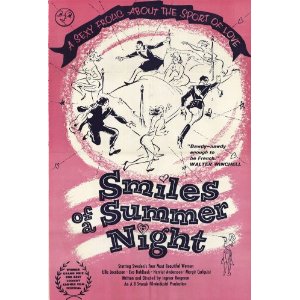
Herein commences the part of the list I’d mostly describe as “good but not great in general” but on a Bergmanesque curve they get downgraded a bit more. There’s nothing wrong with this film per see, again I just don’t feel it.
30. The Devil’s Eye (1960)

The quote on the opening title card is the most memorable portion.
29. The Magician (1958)

This is just a film I was left wanted a bit more from.
28. Sawdust and Tinsel (1953)

This is one I often associate to Smiles of a Summer night with regards to the visceral reaction I had to it, tepid in comparison to his best.
27. Torment (Written by) (1944)

Here’s one that I saw because of the great Criterion Eclipse set and due to that I will count it, though he did not direct it. While it does suffer some from not having him helm it his voice writing-wise is there.
26. Port of Call (1948)

Here’s one of the few I’ve actually managed to see on the big screen, at Lincoln Center I believe. It’s a fairly light neorealist romance that has its moments.
25. Faithless (Written by) (2000)

As I was editing this list I was reminded of this, and if I include one written by and not directed by I should include another. This film was one that came along when Bergman was sort of semi-retired. It debuted in Sweden three years before his swan song and was directed by Liv Ullmann, his frequent star. I can’t say I recall much about it save that I did like it more than many who saw it and more than Torment above. It is worth seeking out.
24 The Making of Fanny and Alexander (1986)

I debated whether or not to include this one but considering that he is credited as director and it does chronicle one of his most epic productions I allow it. It’s a fairly engaging chronicle of a production.
23. Summer with Monika (1953)

Here’s the part of the list where the list picks up quality-wise. This dramatic romance has its rough patches but it connects emotionally and has really good performances.
22. The Passion of Anna (1969)
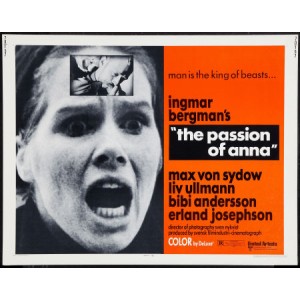
This is a film that definitely needs revisiting that I have only seen once. Based on my first impression I liked it and some of the simulacrum but I wasn’t enamored by it.
21. The Serpent’s Egg (1977)

This could perhaps be the most severely underrated of his films, based on what I’d read I was not expecting much from this one at all, but I really did enjoy this a great deal and love the concept.
20. The Silence (1963)

I would also say I need to see The Silence again. I most definitely enjoyed it but not as much as I thought I would. It definitely fits the trilogy. I just felt slightly let down.
19. Shame (1968)

This is the kind of film that doesn’t really hit you immediately but works on you over time. I’ve been fortunate enough to both read it and view it.
18. Crisis (1946)

I’d have to see this again to give you a detailed impression of my thoughts on this, but I do remember thinking that it was middling in his canon when I saw it.
17. Thirst (1949)
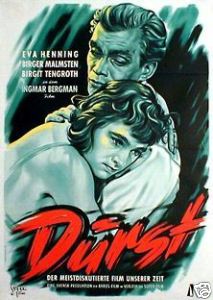
Similar comments to be made here as above. This is really a delineation point in the list. The more ascendant films start now.
16. Face to Face (1976)

This is a film I happened to read before I saw. It only got released on US home video last year and I was very glad to see it at last and also see a greatly executed visual interpretation of the text.
15. The Magic Flute (1975)

I haven’t the complaints of this one that opera snobs have with regards to the language in which the performers sing or the performances themselves. I’m not familiar with many and was introduced to this tale through this film, which I think is great. I also love the opening montage.
14. Scenes from a Marriage (1973)

Here’s a case where ranking can seemingly slight a film. This may be perhaps the most well-acted film he ever did. However, there is an intangibility that the film is hinting at that keeps it from being just at the upper crust. That being said it is very watchable all the way through many times over.
13. Hour of the Wolf (1968)

Here’s one I revisited and took many a note on, I may look over them and post a review for 61 Days of Halloween. It truly is a horror tale a la Bergman, he does the genre as he would, which makes it fascinating.
12. Summer Interlude (1951)

I had to delay the making of this list to watch this film, which was recently released by the Criterion Collection for the first time. I thought this was such a sensitive, slight and moving love story that really is a great transitional Bergman film. It really serves as a thematic bridge from his earlier works to his later ones. With that in mind I expected to plop it down somewhere in the middle of this list. However, I got past the middle and was able to move it up just a little bit further than I expected. It’s definitely one I’d want to revisit, but I am comfortable placing it here.
11. Cries and Whispers (1972)

One of the first of his films I remember seeing. Amazing use of color and tremendous drama.
10. Saraband (2003)

This was the film that not only sealed that I’d name the life achievement award in my personal awards after him but also won a few BAMs itself.
9. Through a Glass Darkly (1961)

One of his most haunting dramas.
8. Fanny and Alexander (Theatrical) (1982)

This is a film I happened upon in part once, then bought on a whim to discover I’d seen part of it before. It was here I fell in love with Bergman after The Seventh Seal nearly short circuited that for me. I was still rather young, maybe 15, and I was so glad to have given him another shot. It’s a film that resonates with people of all ages I feel. For I’ve grown with it and its grown with me.
7. Fanny and Alexander (TV) (1982)

I try and treat different edits of films on a case-by-case basis because they may or may not differ in how the film is affected. When you consider that this version of the film is about two hours longer (about five total) and I watched it straight through, I’d say that makes it bit better than the already fantastic theatrical cut.
6. Autumn Sonata (1978)

One of the most intense viewing experiences of all his films and one I was able to see on the big screen also at The Film Forum.
5. To Joy (1950)

Without question the most incredible discovery of the Criterion Eclipse set. An astoundingly moving tear-jearker with an assist from Beethoven.
4. The Virgin Spring (1960)

Might be the kind of movie you only need to see once. Brutal and devastatingly brilliant.
3. Wild Strawberries

Death is one of my continual fears, I’ve reached peace with the notion from time to time, but it comes back as life is cyclical. Bergman dealt with death a lot (amongst other things) and I think that’s part of the kinship I feel to his work and no observation he made about life or death is perhaps as well-realized as this is.
2. Persona (1966)

The embodiment of his quote that he’d rather have his films understood emotionally rather than intellectually. A tremendous work that begs to be seen many times over.
1. Winter Light (1963)

Here’s where the list becomes truly personal. Many would likely list something like the above as their number one and I’d offer no argument. This was and is a film that personally affected me a great deal. It connected with where I was as a college student and feeling rather apocalyptic about life and the world. Yet, I also drew a lot of inspiration from it. In fact, a short I did (that I had to change for a number of reasons) owes its genesis to my thinking on this film.
Below you will find films of his I still need to see:
Need to See
The Touch
The Rite
All These Women
A Dream Play
Stormy Weather
Brink of Life
The Venetian
Dreams
Music in Darkness
A Ship Bound for India
It Rains on Our Love
After the Rehearsal
Bergman, however, is not only someone I’ve watched extensively. I’ve also read his work and about him.
Read
The Fifth Act

A collection of some shorter later works, which are all interesting. After the Rehearsal is perhaps the best.
A Project for the Theatre

A brilliant work, which I’d love to see realized on screen. Here Bergman creates a tale of progressive women through the ages that time travels from Ibsen’s A Doll’s House, Strindberg’s Miss Julie (this interpretation, I actually enjoyed more than the original) and a truncated treatment of Scenes from a Marriage.
Persona and Shame

When I saw this was being published I had to jump at it. I ended up reading Shame before I saw it.
Face to Face

I read this by chance well before I ever saw the film. I found a paperback and ran off a copy of it.
Autumn Sonata

Same story as above.
Scenes From a Marriage
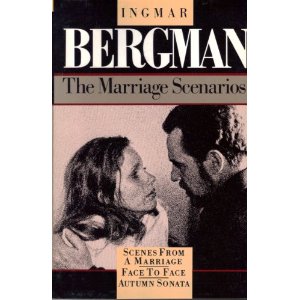
Took it out from a library.
Sunday’s Children

A memoir-like novel by Bergman, which is a quick light read. I have yet to see the cinematic rendition.
The Films of Ingmar Bergman (Kalin)
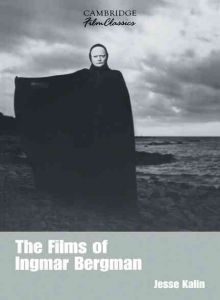
A great read. An essential for fans and neophytes alike.

